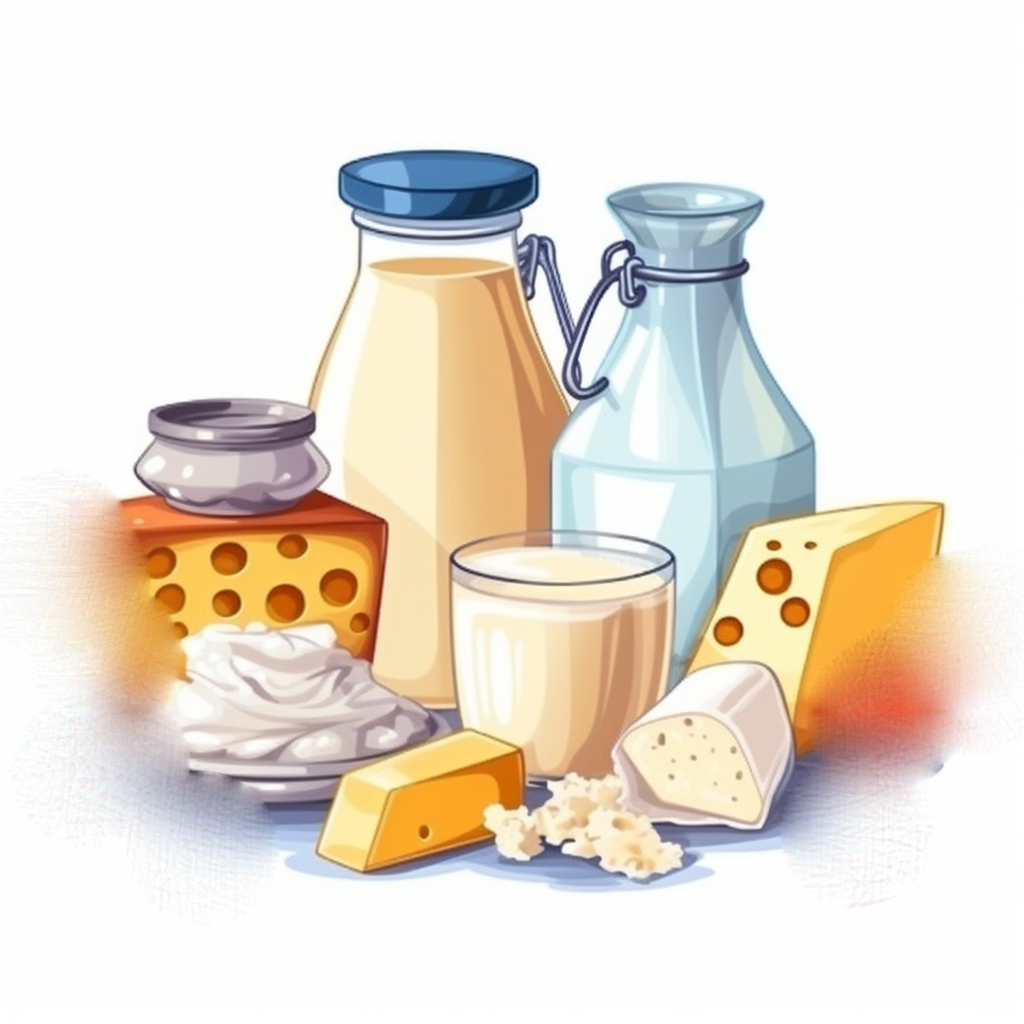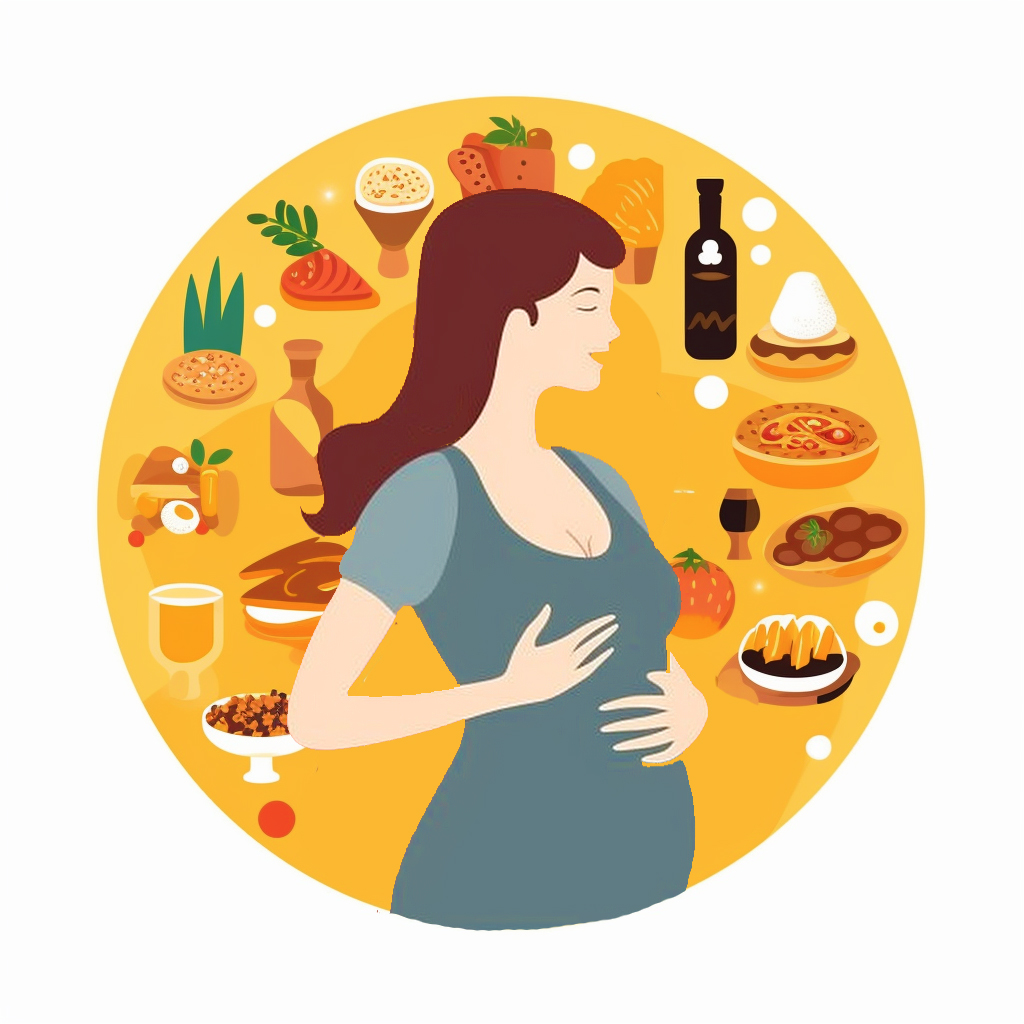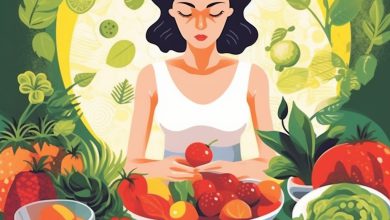7 Foods to Avoid in Pregnancy + List of Prohibited Foods for every trimester

To ensure both the health of the mother and the unborn child, it is crucial to maintain a balanced diet and receive the right nourishment throughout pregnancy. The fetus can obtain the nutrients required for growth through nutrition and a good diet. Although, there are several foods to avoid in pregnancy. Pregnant women are advised today to avoid processed and artificial foods as much as possible, transition to a balanced, nutritious diet, and abide by the dos and don’ts that are listed in this post.
Foods to Avoid in the First Month of Pregnancy
The first three months of your pregnancy are known as the first trimester. When your kid begins to develop gently in your womb, a number of changes in your body will occur. For expectant mothers, this phase of pregnancy can be challenging.
You need to continue eating a balanced diet even while you’re experiencing food cravings and morning sickness. Moreover, there are several foods to avoid when pregnant first trimester. The health of both you and your unborn child depends on this.
Foods to avoid during early pregnancy are as follows:
Seafood Containing Mercury
Mercury poisoning can result from consuming fish with high mercury levels. Fish that contribute to water pollution can transfer to your unborn child if you consume them while pregnant. Mercury is a metal that can harm your baby’s brain, delay their growth, and impair their vision and hearing. Avoid eating fish like:

- Swordfish
- Tilefish
- King mackerel
- Shark
- Marlin
- Ahi and bigeye tuna
- Orange roughy
Raw or Undercooked Eggs
Salmonella can be found in eggs that are raw or barely cooked. Try to stay away from meals that include raw or undercooked eggs. Eat less of these things:

- Raw cake batter
- Raw cookie dough
- Soft scrambled eggs
- Lightly cooked omelets
- Salad dressings or mayonnaise with egg
- Eggnog
Raw or Undercooked Seafood and Meat
Dangerous bacteria in raw foods can bring on food poisoning and infections. During pregnancy, this illness may spread to your unborn child. You are more likely to contract toxoplasmosis, salmonella, or listeria if you consume undercooked shellfish and pork.

Make sure you properly prepare these items. Cooking temperatures for chicken and fish should be higher than 160 degrees Fahrenheit. By doing this, you can help destroy the germs and avoid becoming sick yourself or your child.
Eat less of these things:
- Smoked seafood
- Refrigerated seafood
- Raw deli meats
- Undercooked shellfish
- Sushi
- Pâté
Raw Sprouts
Inside of raw sprouts there could be bacteria that is difficult to wash out. To avoid becoming sick, avoid eating raw sprouts. Check whether there are raw sprouts in deli sandwiches or other prepared meals before consuming them. Wash and boil the sprouts completely to eliminate any bacteria that might cause an illness.

Don’t eat these raw sprouts:
- Alfalfa
- Mung beans
- Radish
- Clover
Unpasteurized Milk and Other Dairy Products
Milk is frequently boiled or pasteurized before use to remove bacteria and lengthen its shelf life. Dairy items like cheese and unpasteurized milk may contain listeria-causing germs. Unpasteurized milk consumption might result in food sickness such as listeriosis. This might impact both you and your unborn child and cause a miscarriage or stillbirth.

Check the label to confirm that the goods you’re purchasing have been pasteurized. Avoid eating unpasteurized soft cheeses such as:
- Moldy blue cheese like Danish blue or gorgonzola
- Brie
- Feta
- Camembert
- Chevre
Unwashed Vegetables or Fruits

Fruits and vegetables are crucial components of your diet. Make sure they are clean before you consume them during pregnancy. Unwashed fruits and vegetables might contain toxoplasmosis and other pathogens that could damage you and your unborn child. Avoid eating salads from buffets, open salad bars, or pre-packaged greens as they may contain listeria.
Processed Junk Foods
Pregnancy is the ideal time to begin consuming nutrient-rich meals to benefit both you and your developing baby. Many vital nutrients, including protein, folate, choline, and iron, must be consumed in greater quantities.

The idea that you’re “eating for two” is likewise untrue. During the first semester, you can continue eating as usual. Then, in the second and third trimesters, you can increase your daily calorie intake by roughly 350 and 450 calories, respectively. A healthy pregnancy diet should primarily consist of whole foods with sufficient nutrients to meet the requirements of both you and the unborn child. In general, processed junk food is heavy in calories, sugar, added fats and as they are poor in nutrition, consider them as foods to avoid in pregnancy.
While some weight increase is normal during pregnancy, excessive weight gain has been associated with a number of problems and illnesses. They include a higher risk of gestational diabetes and difficulties during pregnancy or delivery. Keep your meals and snacks focused on protein, fruits and vegetables, whole grains, legumes, and starchy vegetables high in fiber. You can easily incorporate vegetables into your dishes without compromising flavor, so don’t worry.
Are you an expecting mother looking for the best nutrition for you and your baby?
Discover the surprising risks and rewards of a vegetarian diet during pregnancy in our eye-opening article! Unveil the truth behind common misconceptions and make informed choices for a healthy journey. Don’t miss out on valuable insights!
Click here to explore the fascinating world of vegetarianism and pregnancy!
Some Other Foods to Avoid During Pregnancy
Some dietary choices may be detrimental to your health as well as the growth and development of your unborn child. When you’re pregnant, you should also stay away from the following foods:
- Too much caffeine: While modest caffeine use is permitted during pregnancy, excessive consumption might harm your unborn child’s growth. Excessive caffeine use has been linked to a higher chance of miscarriage in the first trimester, according to research. A 12-ounce cup of coffee has 200 milligrams of caffeine,
which is the recommended daily limit for adults. Caffeine may be present in sodas, energy drinks, teas, and chocolate; always check the label. - Too much vitamin A: Avoid vitamin A pills and liver foods like pâté during your first trimester since they may contain high quantities of vitamin A. A high vitamin A dosage might harm your unborn child and result in birth abnormalities. This is because your baby’s liver can’t process a lot of vitamin A because it is still developing.
- Alcohol: Alcohol use is never safe while a woman is pregnant or nursing. Alcohol should be completely avoided when you are pregnant. Fetal alcohol syndrome may occur as a result of heavy drinking and disrupt your baby’s development.
If you have a nut allergy, stay away from nuts. Restrict your licorice and herbal tea consumption. Likewise, only consume pasteurized fruit juices.
Foods to Avoid in the Second Trimester of Pregnancy
The list of the foods to avoid in pregnancy in 2nd trimester is not much similar to the food allowance of the first trimester. This means you should avoid the foods we introduced in the previous section in the second trimester of your pregnancy. In short, the list of foods to avoid during pregnancy includes the following:
- raw meat
- raw eggs
- raw fish
- fish with high levels of mercury, including swordfish, shark, tilefish, and king mackerel
- unpasteurized dairy products
- soft cheeses, such as Brie, blue cheese, and feta
- ready-to-eat meats and seafood
- junk foods

As there is no established safe threshold for alcohol consumption during pregnancy, it should be avoided. Alcohol may be detrimental in all forms and may result in:
- miscarriage
- stillbirth
- fetal alcohol spectrum disorders (FASDs)
FASDs can bring on physical, behavioral, and intellectual problems. Pregnant women can use caffeine in moderation. Although the American Pregnancy Association advises pregnant women to avoid caffeine as much as possible, experts say it is okay to ingest 150 to 300 mg daily. Approximately 95 to 165 mg of caffeine are present in an 8-ounce cup of coffee, while around 45 mg are present in a 6-ounce drink of black tea. Caffeine can also be found in cola drinks, chocolate, green tea, and certain medicines.
Pregnancy is a transformative journey that encompasses not only the physical but also the spiritual aspects of your being. Nurturing your soul and finding inner balance are essential for a harmonious pregnancy experience.
Elevate your spiritual well-being!
Delve into our article “10 Amazing Spiritual Self-Care Examples“ and discover powerful practices to cultivate serenity and connection during this sacred time.
Foods to Avoid in the Third Trimester of Pregnancy
For a pregnant woman, the third trimester may indeed be emotionally and physically taxing. By the conclusion of week 37, the baby is regarded as full term, and delivery is just a matter of time. You may lessen any worry you may experience during the last few weeks of your pregnancy by doing some research and learning what to eat and which foods to avoid in pregnancy throughout the third trimester.
What to eat:
- Have a diet rich in fiber, low-fat protein sources, fruits, and vegetables.
- Drink plenty of water.
- You should eat about 300 calories more than the normal amount you take per day.
- Take the prescribed vitamins every day.
What to avoid:
- smoked seafood
- shark, swordfish, mackerel, or white snapper fish
- alcohol
- unpasteurized milk or dairy products
- raw sprouts
- raw fish
- no more than one cup of caffeine containers

Especially during the first three months of pregnancy, many women experience sickness. It may seem as though you are not feeding your infant properly if you get ill very frequently. Fear not; there is no evidence that morning sickness during pregnancy impacts your baby’s nutrition. You should speak with your midwife if you are feeling more severe nausea or swallowing trouble. Try eating little and frequently to prevent your blood sugar levels from falling too low. There is some scientific support for the idea that ginger-containing meals and beverages might lessen mild to severe morning sickness.
Preparing for parenthood goes beyond the nursery and baby names…
…it also means safeguarding your financial future. Discover the power of financial self-care and how it can provide peace of mind during this exciting journey. Explore our comprehensive checklist and take control of your finances today!
“Don’t miss out on this invaluable resource.”
Click on “financial self-care + checklist” to dive into the world of financial self-care and secure a brighter future for your growing family.
How to Eat Well in Pregnancy
Eating healthily at all times is vital, but during pregnancy, it can benefit both you and your unborn child. It might be difficult to think about eating correctly when you are unwell or exhausted and do not feel like spending time in the kitchen. Don’t put too much pressure on yourself; instead, concentrate on making an effort to eat a variety of foods each day from various dietary categories.
Contrary to popular belief, you do not need to “eat for two” when you are pregnant. A crucial component of eating a balanced diet is controlling your portion sizes. Try to concentrate on keeping things simple when it comes to eating healthy.

Eat less packaged, ultra-processed food that has been seasoned with salt and sugar. It’s crucial to remember what food is bad for pregnant women. This is because there may be a higher chance of issues for both you and your unborn child as a result.
Some pregnant women report that they find it difficult to eat healthily for a variety of reasons, including feeling ill or having issues with their emotional well-being. Speak with your doctor or midwife if you feel you need help.
Get the day going with a nutritious breakfast! This should discourage people from eating high-fat and high-sugar snacks between meals. Slice up a banana or add berries to your morning cereal to enjoy fruit for breakfast. Cook a variety of veggies, puree them in a food processor, and then include them into tomato-based stews or sauces. Serve a salad with your lunch or dinner. Choose a piece of fresh fruit, some dried fruit, or some raw veggie sticks with some hummus for dipping as your snack.
Women should consume around 2,000 calories per day on average. According to how active you are, you might need to consume an additional 200 calories if you are pregnant and in the third trimester. To assist you in understanding how much of each food type should try to compensate for these 2000 calories, the NHS has developed the Eatwell Guide. While you do not need to adhere to these ratios at every meal, attempt to achieve the balance over the course of a day or even a week.
Tips for Foods to Avoid in Pregnancy
- Steer clear of fish rich in mercury, such as marlin, shark, swordfish, and tuna.
- Bacteria and parasites can be present in raw fish and shellfish. Some of these may be harmful to your health and the health of your baby.
- Meat that is raw or undercooked might have dangerous microorganisms. Generally speaking, meat has to be fully cooked.
- Sprouts that are still raw might contain germs. Eat them only if they are fully cooked.
- Foods like fruits and vegetables might contain dangerous microorganisms like Toxoplasma. All fruits and vegetables should be properly washed in lots of fresh water.
- Consuming unpasteurized milk, cheese, or fruit juice increases your chance of contracting germs.
- Salmonella contamination in raw eggs poses a risk to both you and your unborn child. Before eating, make sure the eggs are fully cooked.
- Iron, vitamin B12, vitamin A, and copper are all found in large quantities in organ meat. Limit your consumption of organ meat to just a few ounces once a week to avoid getting too much vitamin A.
- Restrict your daily caffeine intake to 200 mg, which is equivalent to 2 to 3 cups of coffee. Low birth weight and restricted growth of the infant may result from high caffeine use during pregnancy.
- Processed food consumption during pregnancy increases the risk of problems, including gestational diabetes and excessive weight gain. For both you and your child’s long-term health, this may have negative effects.
- Don’t drink any alcohol. Alcohol use can raise the risk of fetal alcohol syndrome, stillbirth, and miscarriage.
HealWiser’s Last Piece of Advice
It’s important to stick to the list of foods to avoid in pregnancy that might harm you or your unborn child while you’re pregnant. While the majority of foods and drinks can be consumed without any problems, some, such as raw fish, unpasteurized dairy products, alcohol, and high-mercury seafood, should be avoided.
In addition, some meals and drinks like coffee and those with a lot of added sugar should be avoided to support a healthy pregnancy.
Share your experience with HealWiser and others in the comments section below this post.






